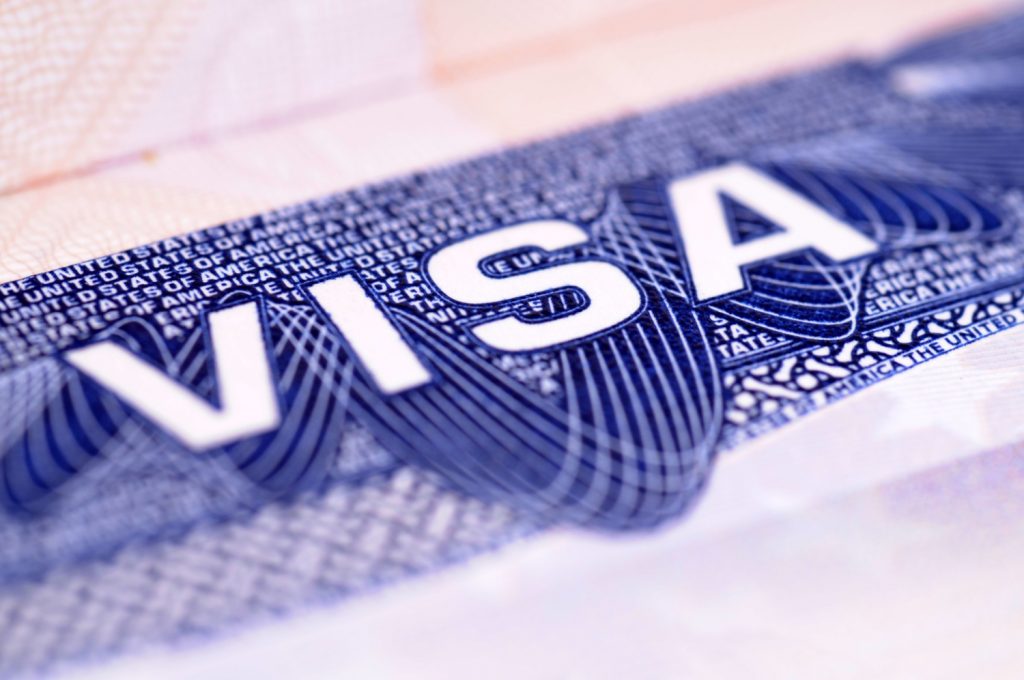It is no news that companies continuously hire the best talent to make it big in their respective niche of the market ecosystem. Companies, nowadays, go as far as looking out for foreign employees who have the potential to impact their growth positively.
However, some companies still hesitate to sponsor visas for foreign workers. Visa sponsorship is quite important, but it comes with its cost and intricacies that must be considered. There are different reasons why companies drag their feet when it comes to sponsoring visas and you need to understand these reasons.
In this article, we will help you answer the questions and point out why some companies can be reluctant to sponsor visas for foreign workers.
Let’s get started!

Source: Freepik
Visa Sponsorship 101
Visa sponsorship, even though its process might look complex, is simply a case where a company or an employer decides to apply for authorization to permit a foreigner to work in a given country. Some responsibilities come with it, and it is a formal process that requires care and attention to detail.
Now before we move on to the “Why”, let’s look at the types of visas that can be sponsored.
Types of Visas That Require Company Sponsorship
There are different types of work visas requiring company sponsorship, each with criteria that must be met.
1. H-1B visa
The H-1B visa is the most common visa for workers in specialized fields like IT, engineering, and finance. This visa type is subject to an annual cap and lottery system. Additionally, it requires the employer has tp prove that the foreign worker has the necessary qualifications.
2. L-1 visa
The L-1 visa is ideal for intracompany transferees who work in managerial positions and have specialized knowledge in that area. The employer must have an office in both the U.S. and the employee’s home country. This visa allows companies to transfer employees from their foreign offices to the U.S.
3. E-2 visa
The E-2 visa is for nationals of countries with which the U.S. maintains a treaty of commerce. It requires the employee to invest a substantial amount of capital in a U.S. business. The employer sponsors you, but the employee must also invest.
4. O-1 visa
This visa is for individuals with extraordinary ability in their field, such as scientists, artists, athletes, or business professionals. The employer must demonstrate that you have achieved significant recognition in your field.
Read also: Is It Easy to Get a Visa Sponsorship Job in the UK?

Source: Freepik
Why Don’t Companies Sponsor Visas?
#1. The cost and complexity of visa sponsorship
Visa sponsorship isn’t just about the paperwork involved. It involves money too and companies must cover various costs, including filing fees, legal fees, and compliance costs. For example, an H-1B visa can range from $5,000 to $10,000 per applicant. For smaller companies, this is a considerable investment, especially when there’s no guarantee that the visa will be approved.
However, you need to know that the visa process is complex and requires specialized knowledge of immigration laws. Any company that intend to sponsor visa must ensure that they comply with all regulations, or they risk legal repercussions. This can be daunting, particularly for businesses without in-house legal expertise. They may need to hire immigration attorneys, adding to the cost and further complicating the process.
#2. Uncertainty and risks associated with visa approvals
The U.S. visa process is not only costly but also unpredictable. The H-1B visa, for instance, is subject to a lottery system due to the high number of applications. Companies can spend thousands of dollars on a visa application only to find that their candidate wasn’t selected in the lottery. This uncertainty makes companies wary of committing resources to a process with no guaranteed outcome.
Changes in immigration policies also add to this uncertainty. With each administration, visa policies can shift, creating an unpredictable environment for employers. Companies may hesitate to sponsor visas if they believe that the rules could change midway through the process, potentially leaving them in a difficult situation.
#3. Preference for local talent
Some foreign companies prefer local talent over foreign skilled workers. Why sponsor a foreign worker’s visa when I can get someone over here to do the job?
There are many cases where companies can find qualified candidates within the local workforce, eliminating the need to navigate the complexities of visa sponsorship.
Employers often see it as a safer option which cancels out all the risks associated with visa denials, delays, or potential changes in immigration policy. Moreover, hiring locally allows companies to avoid the extra costs associated with relocating international employees.
#4. Employee retention concerns
Employee retention is another critical concern for companies considering visa sponsorship. Employers may worry that after investing in visa sponsorship, the employee might leave once their visa or green card is secured. This perceived lack of long-term commitment can deter companies from investing in international candidates.
Companies want to ensure that their investment in an employee will pay off in the long run. If they believe that the candidate might leave shortly after the visa is approved, they may choose to avoid the risk altogether and focus on hiring local talent instead.
Read also: UK Global Talent Visa – All You Need to Know in 2024

Source: Freepik
Tips for Navigating Visa Sponsorship Challenges
Here are some tips to help you navigate challenges you might encounter while working towards visa sponsorship:
#1. Learn and bargain
- Make sure to align your visa sponsorship with the company’s strategic goals.
- Educate employers on the benefits of hiring international talent.
- You can also suggest consulting with an immigration attorney to simplify the process for you.
#2. Look out for alternatives
- Look for cap-exempt employers such as universities or non-profits.
- Use job boards like LinkedIn and attend industry events to find companies open to sponsorship.
#3. Check out other visa options
- You can check out OPT and STEM extensions if you’re a recent graduate, or look into other visa categories like TN, O-1, or L-1 visas, depending on your qualifications.
#4. Consider remote work or further education
- You can decide to pursue higher education in fields with better visa sponsorship opportunities, or
- You can discuss remote work options with your employer as a temporary solution.
Wrapping Up: Why Do Companies Avoid Sponsoring Visas?
Understanding the reason behind a company’s hesitation to sponsor visas is important for your job-seeking journey. Companies that sponsor visa accrue costs and have to go through legal processes to arrive at the final destination. To avoid the challenges involved, an employer can decide to employ a local talent. However, as an employee, there are tips you can use for your gain.
Educating employers about the benefits of hiring foreign skilled workers and how it aligns with their goals is the first step. You also need to explore alternative employers and increase your chances of securing a sponsorship. On the other hand, you can decide to work remotely while trying to navigate the visa process.
